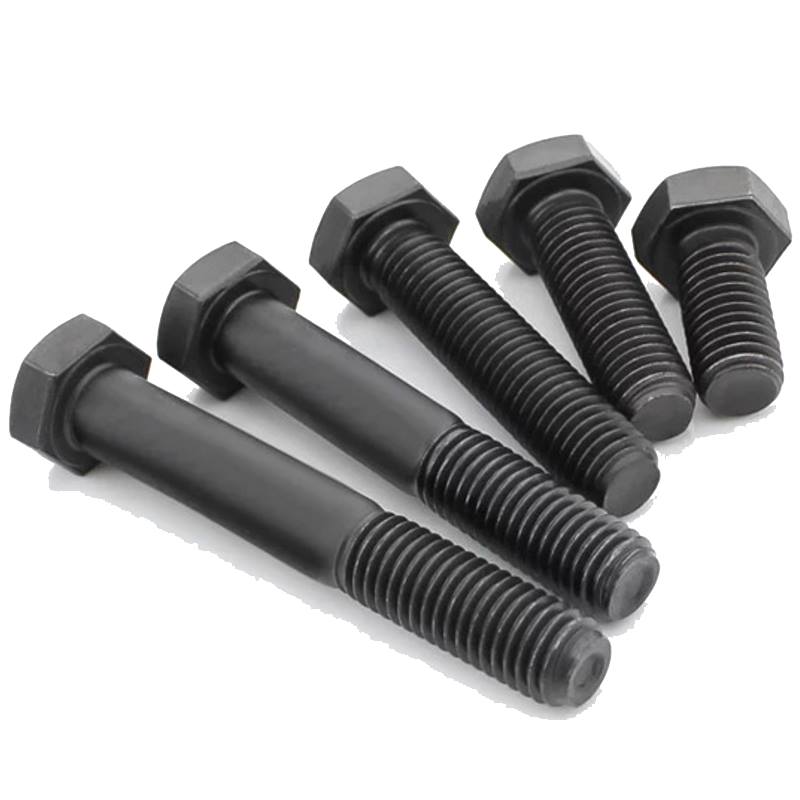oem acorn nuts and bolts
Nov . 24, 2024 18:10 Back to list
oem acorn nuts and bolts
The Importance of OEM Acorn Nuts and Bolts in Modern Engineering
In the realm of engineering and manufacturing, precision and reliability are of utmost importance. One component that plays a critical role in these industries is the acorn nut—often used in conjunction with bolts. OEM (Original Equipment Manufacturer) acorn nuts and bolts are designed to meet specific industry standards and are integral to ensuring structural integrity and performance across various applications.
What are Acorn Nuts?
Acorn nuts, also known as cap nuts, are a type of fastener that features a domed top. This design not only enhances aesthetics but also provides functional benefits, including protection for the bolt threads from dirt and damage. The domed shape of an acorn nut helps to minimize the risk of snagging and increases safety by preventing the exposed end of the bolt from posing a sharp hazard.
Acorn nuts are typically used in applications where appearance is important or where the fastener needs to be protected. They are found in a wide range of industries, including automotive, aerospace, construction, and furniture manufacturing. Due to their versatile design, acorn nuts can be used in both permanent and temporary applications.
The Significance of OEM Components
OEM acorn nuts and bolts are manufactured to meet the specifications and standards set forth by the original equipment manufacturers. This means that they are created with the exact dimensions, materials, and performance characteristics required for the specific application they are intended for. Choosing OEM parts ensures compatibility and reliability, which can greatly reduce the risks of product failure and subsequent safety hazards.
The importance of using OEM components cannot be overstated. In critical applications where even the smallest failure can lead to catastrophic consequences, such as in the aerospace industry, using OEM products guarantees a level of quality and reliability that aftermarket components simply cannot achieve. OEM acorn nuts are rigorously tested to ensure that they can withstand the stresses and strains of their intended use, making them a reliable choice for engineers and manufacturers.
oem acorn nuts and bolts

Materials and Coatings
OEM acorn nuts and bolts are available in a variety of materials, including stainless steel, carbon steel, and plastic. The choice of material directly impacts the fasteners' strength, corrosion resistance, and overall performance. For example, stainless steel acorn nuts are often used in high-corrosion environments due to their resistance to rust and oxidation.
Additionally, many OEM acorn nuts and bolts come with specialized coatings to enhance their performance. Coatings such as zinc plating, black oxide, or nylon inserts can provide additional protection against corrosion, increase the lifespan of the fasteners, and improve their grip and stability in assembly.
Applications of OEM Acorn Nuts and Bolts
The applications for OEM acorn nuts and bolts are extensive. In the automotive industry, they are utilized in vehicle assembly for securing various components, ensuring a sleek finish and protecting the threaded ends of the bolts. In construction, they are often used in structural applications where aesthetic appeal and safety are paramount.
In furniture manufacturing, OEM acorn nuts provide a polished look to assembled products, such as tables and chairs, while also maintaining the structural integrity necessary for daily use. The versatility and functionality of these fasteners make them a preferred choice in many sectors.
Conclusion
In conclusion, OEM acorn nuts and bolts play a vital role in a wide array of industries, providing secure fastening solutions that meet rigorous safety and quality standards. Their unique design, coupled with the benefits of using OEM components, ensures that engineers and manufacturers can rely on these fasteners to deliver high performance and durability. As technology continues to advance and industries evolve, the demand for high-quality fastening solutions like OEM acorn nuts and bolts will only continue to grow, underlining their importance in modern engineering practices. Whether in automotive, aerospace, or construction, these specialized fasteners are essential for ensuring the reliability and safety of the final product.
Latest news
-
High-Quality Panel Stud Bolt Reliable Panel Stud Bolt Factory & Suppliers
NewsJul.08,2025
-
High-Precision Fine Thread Locknuts Manufacturer & Supplier Custom Solutions
NewsJul.08,2025
-
PH Imperial Stud Bolt – High Strength Fasteners from Leading Supplier & Factory
NewsJul.07,2025
-
High-Quality Allen Wrench Bolts Leading Factory, Company & Suppliers
NewsJul.07,2025
-
Wholesale Ball Stud Bolt - High Quality Supplier & Factory Price Reliable Wholesale Ball Stud Bolt Company
NewsJul.06,2025
-
High-Strength Alloy Bolts Manufacturer & Supplier Quality Alloy Fasteners Factory
NewsJul.06,2025
